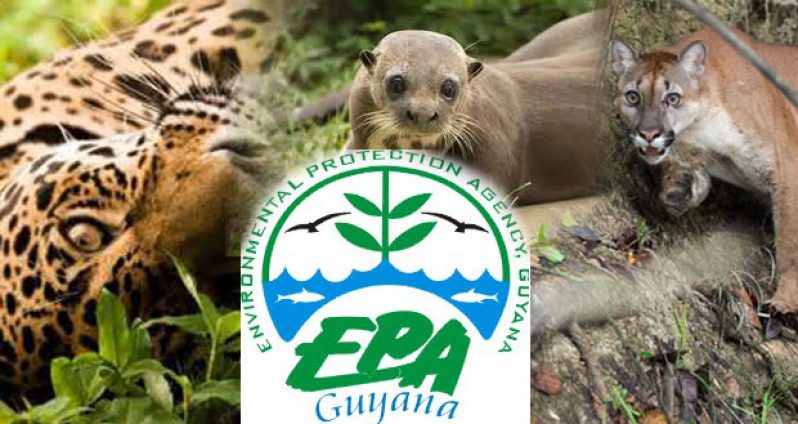Exceptional benefits
WILDLIFE – both plants and animals – have no doubt played a significant role in shaping our traditions and customs throughout human history. Man’s interaction with the wildlife from as long as recorded history shows that wildlife has played a great role in our beliefs, food, clothing and medicine. More so, in modern times, through the advancement of technology and research, man has studied and gained a better understanding of the unique features of some species of wildlife. The knowledge gathered through wildlife research has led to ground-breaking improvements in the medical field. Would you believe that of the estimated hundreds of thousands of species of plants that exist, only a mere 2% has been studied by man for medicinal use? Unfortunately, deforestation rates have been on a constant rise seriously reducing the chance of finding cures for the many other diseases plaguing the world.
Wildlife inspiring innovations
Today, the field of bio-mimicry is an innovative approach to finding solutions for some human challenges by studying nature – including some species of wildlife. For example, a building in Zimbabwe has an air conditioning system installed which was inspired after scientists studied the complexity of termite mounds. Amazingly, these termite mounds are able to maintain cool temperatures inside their habitat with temperatures outside between 42 degrees Celsius. Meanwhile, the design of the elongated pectoral flippers of the Humpback Whale is being used to improve the speed at which massive wind turbines turn so that they can better generate electricity. 
No doubt, the benefits of wildlife to man are tremendous. Sadly, our wildlife populations are declining rapidly. One WWF Report states that “The decline in animals living in rivers, lakes and wetlands is the worst — 76% of freshwater wildlife disappeared in just 40 years. Marine species and animals living on land suffered 39% decline in their populations.” They further added that “while the animals are suffering now, the long-term impact will be on people”. Yes, wildlife plays an integral role in maintaining the ecological functions. Stand-alone, wildlife contributes significantly to many economies through eco-tourism – bird watching, sports fishing, safari tours, nature hikes, etc.
How can we help to protect our Wildlife?
It is in our own interest to protect and care for these ‘voiceless creatures’ today. One of the most important things we can do is learn more about Guyana’s unique wildlife. Moreover, we would want to support local wildlife conservation efforts.
At the national level, through the Ministry of Natural Resources and the Environment (MNRE), the Environmental Protection Agency (EPA) and the Protected Areas Commission (PAC) in particular, undertake much work with specific responsibility for coordinating efforts for the protection and conservation of Guyana’s rich natural resources. The PAC has the role of establishing and managing Protected Areas in Guyana. Two recently established Protected Areas in Guyana are Shell Beach Protected Area and the Kanuku Mountains Protected Area. These areas have been found to be home to diverse species of wildlife in their natural pristine habitats. Management of these Areas ensures that the wildlife species living there are protected from human-activities such as logging, mining, hunting and trapping and so our unique landscapes and abundant wildlife are preserved for future generations to enjoy.
The EPA has taken additional actions to help facilitate the protection of our wildlife which may not find protection in a Protected Area. In 2013, the Wildlife Management and Conservation (WMC) Regulations (2013) made under the Environmental Protection Act (1996) was enacted. This piece of legislation strengthens the efforts of the EPA to protect our wildlife in the following ways:
(1) through better management of the local wildlife trade;
(2) giving protected status to wildlife populations that research shows to be on the decline due to overharvesting or habitat destruction; and
(3) taking action related to acts of cruelty to wildlife.
The Wildlife Management Division manages the Wildlife Export Trade which ensures that the quantities of any species of wildlife traded from Guyana are in keeping with set quotas. This is to ensure that no species is excessively traded soas to significantly affect its population. Of note is that species of wildlife classified as endangered e.g. Jaguars; Giant Otters etc. under the Wildlife Convention (CITES) are restricted from being traded.
Cruelty to Wildlife
Over the years, several reports have been received of therelentless treatment or senseless killing of various species of wildlife. Such occurrences in the future can now be acted upon more seriously with the WMC Regulations setting the stage for charges to be made. There are heavy penalties for acts of cruelty stipulated in the Regulations. Anyone who unnecessarily kills or harms any wildlife is in fact committing an offence that is punishable by law.
Citizens are encouraged to report such acts of cruelty to the Environmental Protection Agency or the nearest Police Station.
Notably, the WMC Regulations gives considerations for circumstances of ‘nuisance and threats from wildlife’. In such a case when wildlife proves to be an immediate threat to human, the regulation stipulates that “it may not be unlawful for any person to kill or wound any wild animal in defence of himself or any other person if immediately and absolutely necessary”. In such cases, a report must be made to the EPA detailing the circumstances under which the act was committed.
Share your ideas and questions by sending letters to: “Our Earth, Our Environment”, C/o EIT Division, Environmental Protection Agency, Ganges Street, Sophia, Georgetown or email us at eit.epaguyana@gmail.com.




.png)









